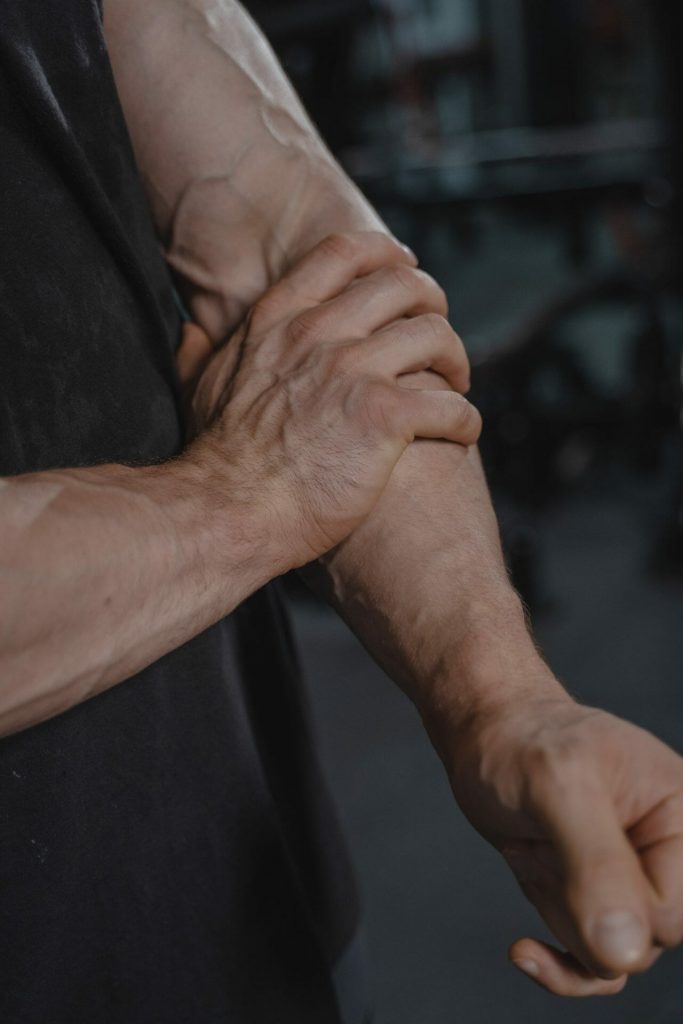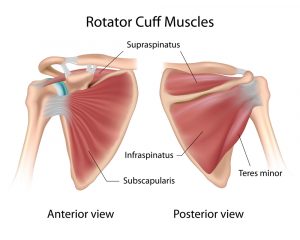What is tendonitis?
Tendinitis is a condition in which the connective tissue between the muscles and the bones (tendons) becomes inflamed. It is usually caused by repetitive activities. It is most common in the elbow, knee, shoulder, hip or Achilles tendon. Tendinitis can have acute (short-term) or chronic (long-term) character. When tendinitis becomes chronic, it might evolve into a tendinopathy. How to recognise these conditions? Could tendinitis be dangerous to my health and fitness?
Tendons are string-like structures located where the muscle tapers and attaches to the bone. It is more fibrous and denser than a flexible muscle. The tendon transfers the pull force of the muscle to the bone, causing movement. If the load is too heavy, it may get inflamed. This usually occurs because of minor and repeated trauma.
If you would like to book a free taster then please contact us here >
Tendinitis often affects the shoulder, elbow, wrist, hip, knee, or ankle. The pain it causes can be quite severe and often comes on suddenly. As with arthritis, the pain is more intense with movement, but it tends to occur in parts of the body further away from the joint. While the problem may be recurring or chronic in some people, it is most often short-term, particularly when a diagnosis is made promptly and treated immediately.
One of the main symptoms of tendinitis is pain in and around the tendon, which gets worse when you perform a specific movement. Other equally common symptoms include:
- a feeling that the tendon is crackling or grinding when moving
- swelling, warmth and redness
- a lump developed along the tendon
- in the event of a tendon rupture, you will feel a break in the tendon line and movement will become difficult
These symptoms may last from several days to several weeks or months. If you notice them, contact your GP immediately.
Who is particularly at risk of tendinitis? They will mainly be people whose work or hobby requires repetitive movements. Risk factors include:
- age: tendons become less flexible with age and more susceptible to injury
- occupation: if work involves repetitive movements, uncomfortable positions, frequent above the head movements, physical jobs
- sports: activities that require repetitive movements can lead to tendinitis, such as running, tennis, swimming, basketball, golf, bowling or baseball
- certain medical conditions: people with diabetes and rheumatoid arthritis are more likely to develop tendinitis
How to treat tendonitis?
Treatment is carried out in several ways. One of them is pain relief. It usually comes down to manual therapy on soft tissues. You can also relieve pain yourself using special massage rollers. It will also be important to reduce tendon irritation, i.e. stopping for a while the activity that causes pain. It is worth doing stretching exercises at the same time, because instead of complete rest, it is recommended to make movements in a lighter, controlled manner. This allows the tendon to continue working and the muscles to acclimate to the load without causing pain or further damage. Strengthening the entire area and movement significantly reduces the likelihood of another episode of tendinitis.
If inflamed tendon lingers, it might become a tendinopathy which means that certain section of tendon cannot fulfil its function anymore and become painful as the load increases. One of the best forms of treatment here is Extracorporeal Shock-Wave Therapy, we offer this in the clinic, it breaks down the scar tissue between the fibres and helps with the inflammation. This is optimal for recovery speed. If you would like to know more then please call 01932 355529
Offer: Book a free consultation with West Chiropractic >


